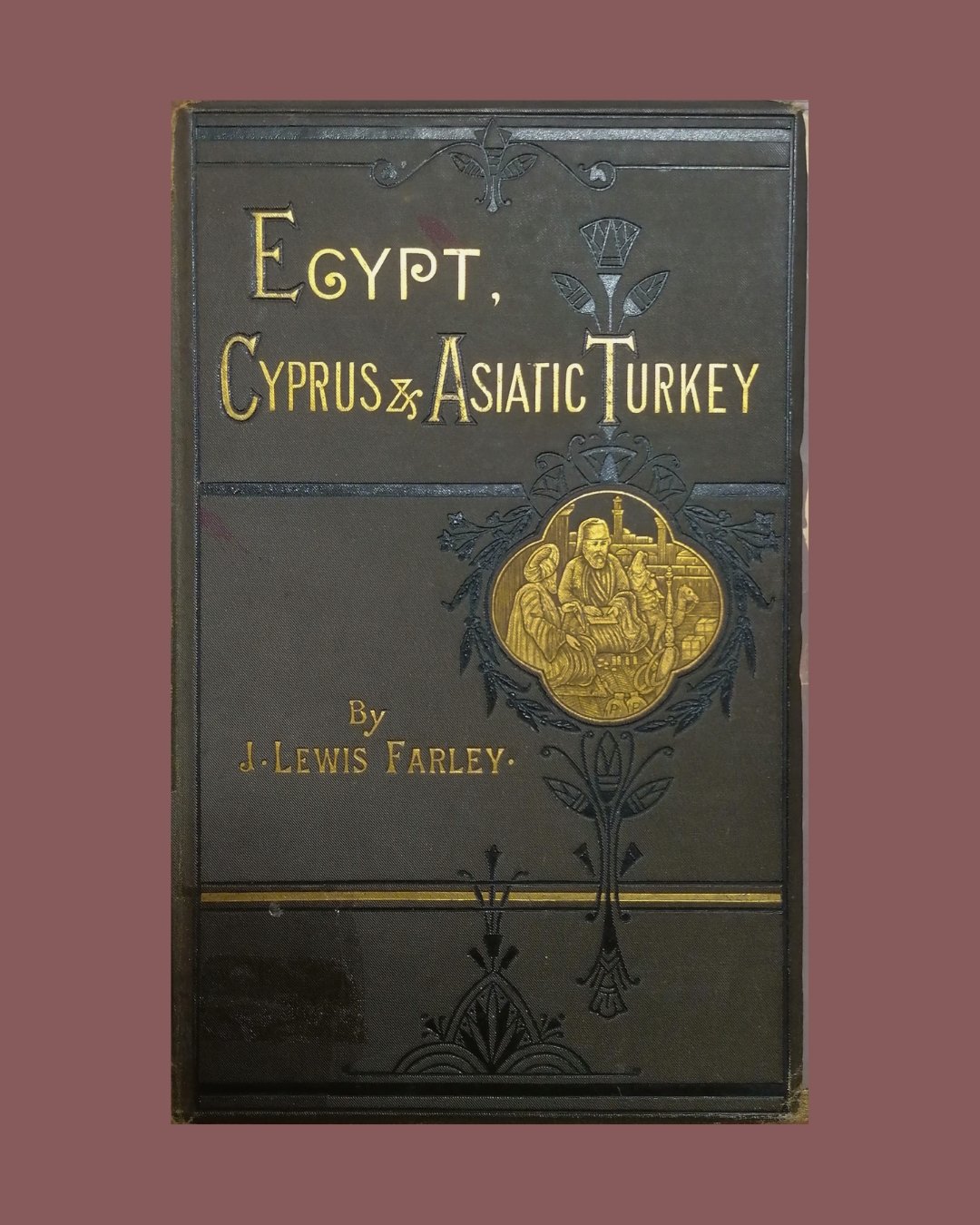James Lewis Farley was an Irish writer, banker, and diplomat who spent years in the Ottoman Empire. He served as a banker in Beirut and Constantinople, later becoming the Irish consul for the Sultan in Bristol, a role that reflected his close ties to the Ottoman world.
A prolific author, Farley wrote extensively on the political and financial structures of the empire. His works include: The Druses and the Maronites (1861) - documenting sectarian violence in Syria, The Resources of Turkey (1862) - an economic overview of Ottoman potential, Turks and Christians: A Solution of the Eastern Question (1876) - a diplomatic and religious analysis of the empire’s future.
Published in 1878, Egypt, Cyprus and Asiatic Turkey draws inspiration on Farley’s experience in the region and reflects the imperial thinking of his time. Though Cyprus occupies a small section of the book, it is a region he considered full of promise. One that, with proper management, could become a model of prosperity under British rule. “[…] altogether Cyprus enjoys the reputation of being the most peaceable island in the Mediterranean. Its present state is that of a country which once was celebrated, rich, and populous; which now is but the shadow of its former days, but for which a better destiny may be reserved.”
Farley writes that he had visited the island and believed it to be “one of the healthiest islands in the Mediterranean.” His comment came at a time when concerns were being raised about the living conditions of British troops stationed there. He argues that any difficulties they faced were not due to the island itself, but rather to the poor planning and decision-making of the British authorities. “If our government had had the ordinary foresight of consulting a native mercantile firm, all the necessary accommodation could have been completed in time so as to have avoided the fiasco which has brought so much discredit on England.”
This short remark reflects the British imperial belief that Cyprus had great potential, provided it was managed properly. For Farley, good governance would unlock the island’s natural advantages. “The island produces cereals in abundance, wool, cotton, madder, silk, flax, sesame, tobacco, colocinth, oil, wine, figs, currants, oranges, honey, pitch, skins; yellow, red, and green umber; butter, and cheese. These products, which have been more abundant in later than in preceding years, will continue to increase with the importance acquired by the agricultural population, as immense tracts of waste land exist that might be profitably cultivated for every purpose. The cultivation especially of the vine and mulberry would be followed by satisfactory results.”
To go beyond Farley’s brief comment, we can take a closer look at what he might have seen or overlooked when it came to the land itself. The Troodos Mountains, rich in volcanic soil, especially on lower slopes, these areas were ideal for vineyards, fruit trees, and olives. “This mountainous district of the island offers immense resources; the forests of Thrados alone, which lie in this section, would, if properly managed, produce annually a considerable number of pine trees.” The Mesaoria Plain, a wide, fertile region between the mountains, long used for cereals and wheat, nourished by seasonal rivers and the Kyrenia Range, a rocky, less fertile region along the northern coast with limited agricultural potential.
Cyprus was also known for copper mining and silk production in earlier centuries. However, farming techniques were outdated. Crop rotation was rarely practiced, and erosion on the slopes affected soil fertility. Farley's optimism about the land may have underestimated these difficulties, but his emphasis on administration suggests he understood that productivity depended not just on nature, but also on how the land was managed.
The value of Farley’s book lies not in its literary style or depth of analysis, but in the fact that it captures the region through the eyes of someone who was there at the time. It is not a travel book in the modern sense, nor is it a detailed history. But it is a useful document for understanding how Cyprus, Egypt, and the wider Eastern Mediterranean were viewed from a particular vantage point in time. It blends travel impressions with political commentary, and while some views reflect the biases of the period, they still offer valuable material for anyone interested in the region’s colonial history.
For readers curious about Cyprus’s transition from Ottoman to British rule or those looking to explore how the island was represented in 19th-century British writing, Farley’s work offers a concise yet revealing perspective.
You can find this book, and many more, in the Research Centre of the CVAR.
The 'Book Of The Month' series is made possible with the support of The Hellenic Initiative Canada.







